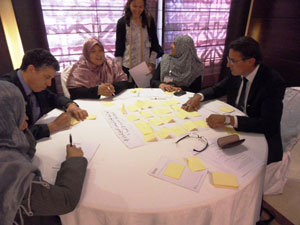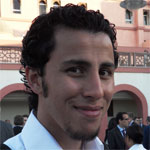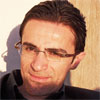Sixteen months after the February 17th revolution the country is preparing for its next historical step: The upcoming elections for a new parliament! Although they have just been postponed from June 19th to take place on July 7th 2012, these elections will be the first free elections for the people of Libya after the 42 year long rule of the Ghaddafi regime.
 Just ahead of the them, the EU –Libya Forum for Civil Society was held in Tripoli in Mid-May. Transparency International was happy and proud to have been invited to participate in the event. The forum was giving local and international civil society organisations and donor agencies the opportunity to identify key sectors of possible cooperate activities and to foster partnerships for the future. The atmosphere was busy and active not only because of that. You could feel that the people of Libya are revelling in their newly discovered liberty and are trying to make the best use of it. Everyone seemed to be eager to finally get hands on on the issues that they are interested in.
Just ahead of the them, the EU –Libya Forum for Civil Society was held in Tripoli in Mid-May. Transparency International was happy and proud to have been invited to participate in the event. The forum was giving local and international civil society organisations and donor agencies the opportunity to identify key sectors of possible cooperate activities and to foster partnerships for the future. The atmosphere was busy and active not only because of that. You could feel that the people of Libya are revelling in their newly discovered liberty and are trying to make the best use of it. Everyone seemed to be eager to finally get hands on on the issues that they are interested in.
During the partnership fair on the second day I met with more than fifty participants who expressed their interest in TI’s core values: Transparency, integrity and accountability. Lots of them have already founded civil society organisations and are dedicating themselves to such varied topics as charity, consumer protection, youth, gender, democracy building, protection of the environment, the role of women, education, awareness raising and many more. Their enthusiasm was literally tangible and it was exciting to hear from the activists about the most important next steps for the country: “We need new blood in the headquarters of all Libyan State institutions” said Karim Namssi, who is working in the fields of awareness raising and culture.

Mosadeqq Hobrara
“Everybody talks about transparency…but noone knows what transparency is talking about”, affirmed Mosadeqq Hobrara who is focusing on democracy trainings and is preparing with his NGO to monitor the upcoming elections.

Ibrahim Ali
“Without transparency, everything is nothing!” I heard from Ibrahim Ali, the president of the Libyan Transparency Association. This NGO concentrates on asset recovery and on stopping impunity. “What is goin on, we do not know. Where the money goes, we do not know. And the governement, they also don’t know!” is the complaint made by Najlaa Daghman whose NGO works on charity and helping those left wounded during the revolution.
It became obvious that the emerging civil society wants to actively participate in shaping the new face of the country. I was also told that they have had enough of theoretical workshops and are now ready to move on into the practical application of their projects. In order to achieve this, external help in capacity buidling and institutional support will be necessary.
That the country is still at an early stage regarding its newly developing civil and political players becomes clear when you get rudly awaken at the night by gunfire or explosions. Also, on the way from the airport I was confronted with quite a different picture than the enthusiastic and awakening one at the forum. Symbols of the old regime – like prisons, party buildings, security agencies and other official governmental bodies – have been left destroyed or even burnt down. The ruins of these remenants of the old regime are clear witnesses to the fact that not until so long ago the country has been exposed to a civil war. The fact that on the day before the forum violent clashes took place at the Ministry of Interior are another indicator for the country’s volatility a month before its first election. One person was killed and several injured when militiamen protesting outside the Libyan prime minister’s office started shooting. Ongoing clashes between different tribes and militias are another indicator for this. The conflicts reached a new peak four weeks ago, when a group occupied the International Airportof Tripoli for several hours. The latest incident to occur was the storming of an election office in Benghazi this weekend.
But such news should not impede the work of the international community in supporting Libya to find its own way of a democratic transition towards a new Libya. The conditions in the country are unique: It is a relatively small country populationwise, it is in the direct neighourhood of the EU and it is quite rich – especially when its oil revenues are distributed in a transparent way. Under the small layer of an English speaking elite there are many different aspects to Libyan society, as well as different powers – traditional and newly emerging ones. While local civil society organisations show an apparent low level of capacity which will require to be build up – the situation is at the same time quite fluid. This means that the right leaders could have a strong impact on shaping the country into the right directions.















 Connect with us on Facebook
Connect with us on Facebook Follow us on Twitter
Follow us on Twitter